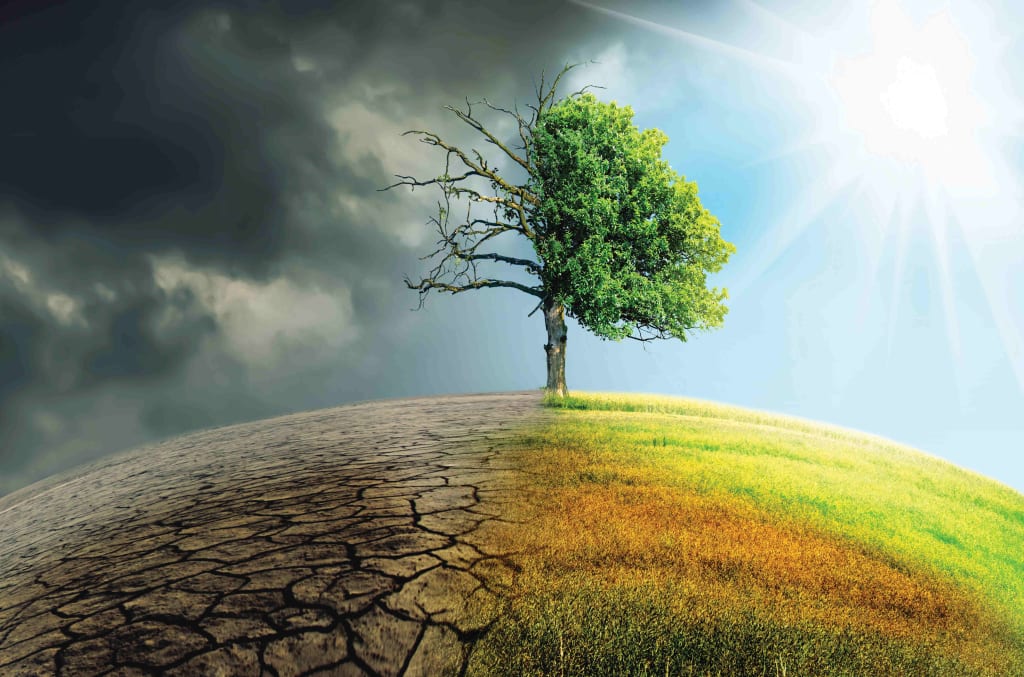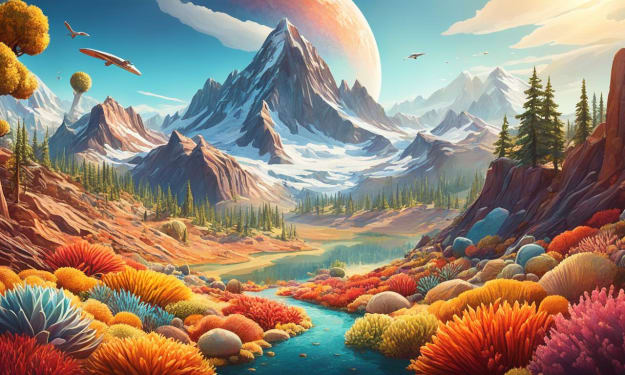
Climate Change: An Overview of the Science, Impacts, and Solutions
Climate change is a defining challenge of our time, with far-reaching and profound impacts on the planet, people, and economies. The Earth's climate is changing at an unprecedented rate, largely due to human activities such as burning fossil fuels, deforestation, and agriculture. The consequences of climate change are already evident, from rising temperatures, sea level rise, and extreme weather events to biodiversity loss, food insecurity, and human health risks. However, there is still time to address the root causes of climate change and mitigate its impacts through collective action, innovative solutions, and policy changes.
The Science of Climate Change
Climate change refers to a long-term shift in the Earth's climate, characterized by changes in temperature, precipitation, wind patterns, and other climatic variables. Climate has always varied over geological timescales, but the current rate and magnitude of climate change are unprecedented in the last 800,000 years, according to the Intergovernmental Panel on Climate Change (IPCC). The IPCC is a scientific body established by the United Nations to assess the latest research on climate change and provide guidance to policymakers.
The main cause of climate change is the increase in greenhouse gases (GHGs) in the atmosphere, primarily carbon dioxide (CO2), methane (CH4), and nitrous oxide (N2O). GHGs trap heat from the sun and warm the Earth's surface, much like a blanket. However, human activities have been releasing more GHGs into the atmosphere than the Earth's natural systems can absorb or balance, leading to a buildup of heat-trapping gases and a warming effect on the planet. The burning of fossil fuels such as coal, oil, and gas is the largest source of anthropogenic GHG emissions, followed by land use changes such as deforestation and agriculture.
The impacts of climate change are already evident and are projected to worsen in the coming decades. Some of the observed impacts include:
Rising temperatures: The global average temperature has increased by about 1.1°C since the pre-industrial era, and is projected to reach 1.5°C to 4°C by the end of the century if emissions continue to rise. This will have a cascading effect on many other systems, such as water availability, food production, and natural disasters.
Sea level rise: The global sea level has risen by about 15 cm since the pre-industrial era, and is projected to rise by up to 1 meter by 2100 under high emissions scenarios. This will threaten low-lying coastal areas, infrastructure, and ecosystems.
Extreme weather events: Climate change is increasing the frequency and intensity of heatwaves, droughts, floods, hurricanes, and wildfires, causing widespread damage to communities and economies.
Biodiversity loss: Climate change is one of the main drivers of species extinction and ecosystem degradation, as it alters the timing, distribution, and quality of habitats, and increases the risk of invasive species and diseases.
Human health risks: Climate change exacerbates air pollution, waterborne diseases, food insecurity, and mental health issues, especially for vulnerable populations such as children, the elderly, and low-income communities.
Solutions to Climate Change
The good news is that there are many solutions to climate change, ranging from individual actions to global policy agreements. The key to tackling climate change is to reduce GHG emissions while enhancing resilience to the unavoidable impacts of climate change. Some of the main solutions include:
Energy transition: Shifting away from fossil fuels to renewable energy sources such as solar, wind, hydropower, and geothermal is crucial to reducing GHG emissions and creating a sustainable energy system. This requires investment in research and development, infrastructure, and policy incentives such as carbon pricing, subsidies for renewables, and phasing out subsidies for fossil fuels.
Energy efficiency: Improving the energy efficiency of buildings, appliances, and transportation can reduce energy demand and lower GHG emissions. This can be achieved through better building codes, standards, labeling, and public awareness campaigns.
Sustainable land use: Protecting and restoring forests, wetlands, and other ecosystems can sequester carbon and enhance biodiversity. Promoting sustainable agriculture, agroforestry, and urban greening can also contribute to GHG mitigation and adaptation.
Circular economy: Shifting towards a circular economy that reduces waste, recycles materials, and promotes sharing and repairing can reduce GHG emissions and create new economic opportunities.
Behavioral change: Encouraging individuals and communities to adopt low-carbon lifestyles, such as cycling, walking, and public transport, reducing meat consumption, and reducing waste can have a significant impact on GHG emissions.
International cooperation: The Paris Agreement on Climate Change, adopted in 2015 by 196 countries, aims to limit global warming to well below 2°C above pre-industrial levels and pursue efforts to limit it to 1.5°C. The Agreement requires countries to submit their nationally determined contributions (NDCs) outlining their GHG reduction targets and strategies, and to regularly report on their progress. The Paris Agreement also establishes a financial mechanism to support developing countries in their efforts to mitigate and adapt to climate change.
Conclusion
Climate change is a complex and urgent issue that requires collective action, innovation, and political will. The science of climate change is clear: human activities are the main cause of climate change, and its impacts are already evident and projected to worsen. However, the solutions to climate change are also clear: we need to reduce GHG emissions, enhance resilience, and promote sustainable development. This requires the engagement of all sectors of society, from individuals to governments, and the adoption of a long-term perspective that values the well-being of current and future generations. By taking action on climate change, we can create a more sustainable, equitable, and resilient world.
About the Creator
Enjoyed the story? Support the Creator.
Subscribe for free to receive all their stories in your feed. You could also pledge your support or give them a one-off tip, letting them know you appreciate their work.





Comments
There are no comments for this story
Be the first to respond and start the conversation.